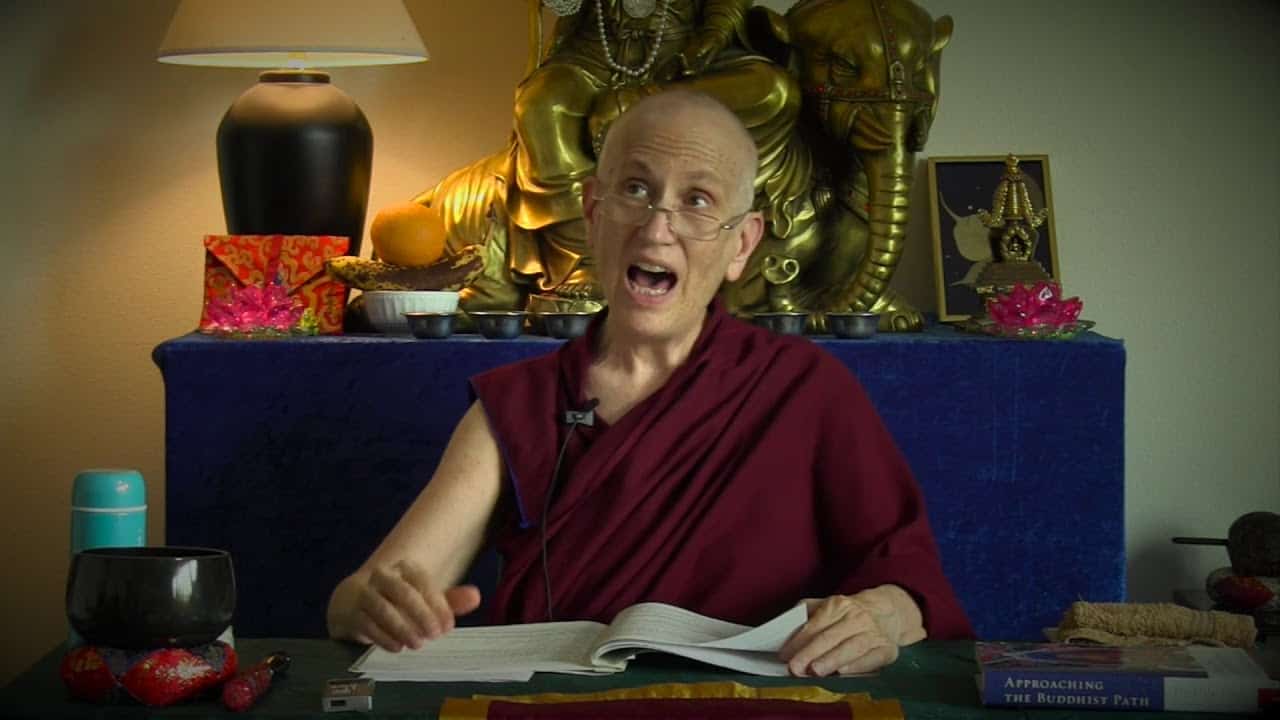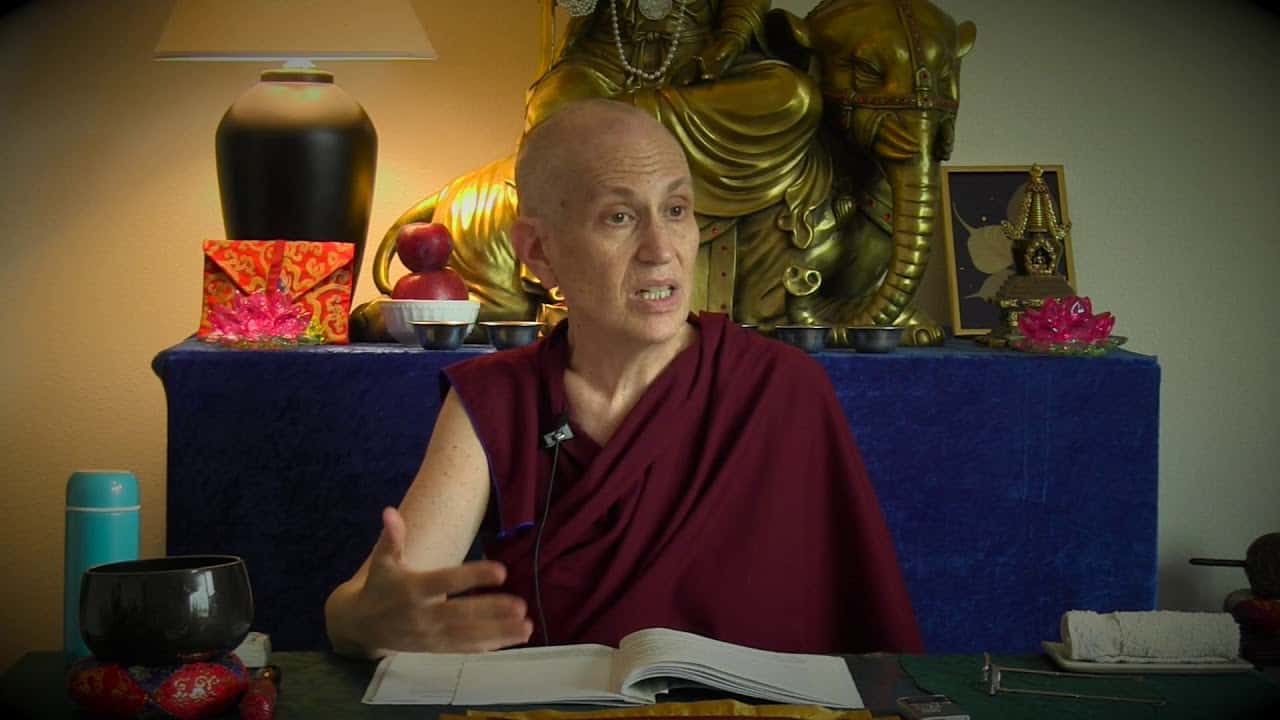The perfection of generosity
The text turns to training the mind on the stages of the path of advanced level practitioners. Part of a series of teachings on the Gomchen Lamrim by Gomchen Ngawang Drakpa. Visit Gomchen Lamrim Study Guide for a full list of contemplation points for the series.
- Worldly generosity versus the perfection of generosity
- Three factors that make a practice a perfection
- Four different types of giving
- Disadvantages of miserliness
- Advantages of generosity
Gomchen Lamrim 101: The Perfection of Generosity (download)
Contemplation points
- Venerable Tsepal said that with worldly generosity, it’s often more like a business transaction whereas with Dharma generosity, we think and act without any expectation of receiving in return. Think about how different these types of giving are. What is the flavor in your mind when you give with expectations? What is it like when you give without expectations?
- There are four types of generosity (the Dharma, freedom from fear, material gifts, and love). Think of examples of ways that you’ve given these in your own life as well as times you’ve been a recipient of them. Rejoice in these. Now think about what holds you back from giving in these ways? What can you do to overcome your hesitation?
- Consider the faults of stinginess/miserliness and how they cause suffering in yours and others’ lives. Some of the examples given were that we have attachment in the mind at the time of death, it makes us anxious, we can’t focus because we’re consumed with accumulating more, people are miserly with us, it breeds loneliness and isolation, it is the root of dispute with others, etc.
- Consider the benefits of giving body, possessions, and virtue. Some of the benefits given were that they are part of the causes for awakening, we are more peaceful at the time of death, it breaks down the concept of “I” and mine, we don’t get burdened with caring for things, it brings great joy to the mind, it is what allows us to connect with others, it increases our ability to love others, it is the basis for a good reputation, it enhances our self-confidence and courage etc.
- Conclusion: Generate a strong aspiration to engage in generosity through your study, reflection, and meditation. Allow a deeper understanding of generosity to influence the way you interact with others in your daily life.
Venerable Tenzin Tsepal
Venerable Tenzin Tsepal was first introduced to meditation in high school in the 1970s. While working as a dental hygienist in Seattle and hospital administration in Yakima, she practiced and attended retreats in the Vipassana tradition. In 1995, she found Dharma Friendship Foundation and teachings with Venerable Thubten Chodron. She attended the Life As A Western Buddhist Nun conference in India as a lay volunteer in 1996. Following a life-changing 3-month Vajrasattva retreat in 1998, Ven. Tsepal lived in Dharmsala, India for two years where she further explored the idea of monastic life. She received novice ordination as a Buddhist nun with His Holiness the Dalai Lama in March of 2001. After ordination, she was immersed in the full-time residential Buddhist Studies Program at Chenrezig Institute in Queensland, Australia, principally with Khensur Rinpoche and Geshe Tashi Tsering. As a qualified FPMT teacher, Ven. Tsepal was appointed the Western Teacher at Chenrezig Institute from 2004 to 2014, teaching the Discovering Buddhism series, tutoring for the general program and leading retreats. In 2015, she tutored three subjects for the FPMT Basic Program. Venerable Tsepal arrived at Sravasti Abbey in mid-January for the 2016 Winter Retreat. She joined the community in September 2016, and received Shiksamana training that October.


